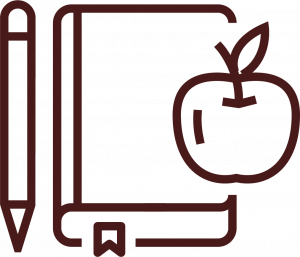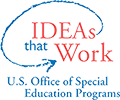
Georgia HLP Induction Professional Learning Series
Share this Resource
Georgia HLP Induction Professional Learning Series

About the Learning Series:
- 7 series professional learning highlighting Georgia’s Tiered System of Supports and High-Leverage Practices (HLPs).
- This series will provide opportunities for induction phase teachers to learn and practice strategies for implementing HLPs within Georgia’s Tiered System of Supports.
- Content is aligned with Georgia’s Teacher Assessment on Performance Standards (TAPS).
- Materials are all free and can be personalized to meet district needs.
Part 1: Introduction to HLPs through a Multi-Tiered System of Supports
Part 2: Establish a consistent, organized, and respectful learning environment; Teach social behaviors (HLPs 7 & 9)
Part 3: Explicit Instruction- The Key to Student Learning (HLP 16)
Part 4: The Gift of Feedback and Guidance to Support Student Learning (HLPs 8 & 22)
Part 5: Using Data to understand Students’ Needs and to Inform Practice (HLPs 1 & 4)
Part 6: Reimagining Classroom Experiences to Maximize Student Engagement (HLPs 18 & 4)
Part 7: Culmination
Additional Resources
Part 1: Introduction to HLPs through a Multi-Tiered System of Supports
Georgia Department of Education: Georgia’s Tiered System of Supports for Students
Georgia Department of Education: Selecting Evidence–Based Interventions
Georgia Department of Education: High-Leverage Practices
Resources:
- High-Leverage Practices
- Selecting Evidence-Based Tools for Implementing Intensive Intervention
- What Works Clearinghouse
- http://www.bestevidence.org/
- National Center on Intensive Intervention Tools Chart
- MTSS vs. RTI
- Taxonomy of Intervention Intensity
- Evidence-Based Intervention Guide
- Positive Behavioral Interventions and Supports (PBIS)
- http://www.pbiscaltac.org/
Introduction to High-Leverage Practices through Multi-Tiered Systems of Support (webinar)
This webinar provides a brief overview of both HLPs and MTSS, discusses how they are interconnected, and provides resources to support the implementation of HLPs for the purpose of providing equitable instruction for all of Georgia’s P-12 students.
http://ceedar.education.ufl.edu/portfolio/ga-hlp-webinar-1/
HLP Introduction Video
Part 2: Establish a consistent, organized, and respectful learning environment; Teach social behaviors (HLPs 7 & 9)
Georgia Department of Education: Teacher and Leader Support
https://www.gadoe.org/School-Improvement/Teacher-and-Leader-Effectiveness/Pages/EquityPlans.aspx
Georgia Department of Education: Division for Special Education Services and Supports – Disproportionality
Georgia Department of Education: School Safety and Well Being
https://www.gadoe.org/schoolsafetyclimate/Pages/Student-Safety-and-Well-Being.aspx
https://www.gadoe.org/schoolsafetyclimate/Pages/default.aspx
Georgia Department of Education: Positive Behavior Interventions and Support (PBIS)
Innovation Configuration: Culturally Responsive Teaching
This paper features an innovation configuration (IC) matrix that can guide teacher preparation professionals in the development of appropriate culturally responsive teaching (CRT) content.
http://ceedar.education.ufl.edu/wp-content/uploads/2014/08/culturally-responsive.pdf
Culturally Responsive Teaching: Meet the Needs of Diverse Learners (webinar)
The purpose of HLP webinar #5 is to explore HLP #18 (i.e., use strategies to promote active student engagement). Throughout this webinar, our keynote speaker, Dr. Neporcha Cone, will discuss culturally responsive pedagogy and its use to deepen student learning by promoting authentic engagement.
HLP #7: Establish a Consistent, Organized, and Respectful Learning Environment (overview video)
Part 3: Explicit Instruction- The Key to Student Learning (HLP 16)
Georgia Department of Education: Georgia’s Tiered System of Supports for Students
Georgia Department of Education: High-Leverage Practices
Explicit Instruction: The Key to Student Learning (webinar)
The purpose of HLP webinar #6 was to explore HLP #16 (i.e., use explicit instruction). Throughout this webinar, our keynote speaker, Dr. Benedict, discussed how explicit instruction marries explaining and describing with modeling while a teacher draws students’ attention to how to use a strategy or makes transparent the underlying thinking involved in completing a task. Furthermore, examples and non-examples of HLP 16 were provided for participants to consider ways to bolster general and special educators’ effectiveness at integrating high quality explicit instruction into everyday teaching.
http://ceedar.education.ufl.edu/portfolio/explicit-instruction-the-key-to-student-learning/
HLP #16: Use Explicit Instruction (overview video)
https://highleveragepractices.org/701-2/
High-Quality Mathematics Instruction: What Teachers Should Know
This Module describes the components of high-quality mathematics instruction: a standards-based curriculum and evidence-based practices. It also highlights a number of evidence-based practices as well as other classroom practices that teachers can use to teach mathematics (est. completion time: 1.5 hours).
https://iris.peabody.vanderbilt.edu/module/math/
SRSD: Using Learning Strategies to Enhance Student Learning
This Module features the Self-Regulated Strategy Development (SRSD) model, which outlines the six steps required to effectively implement any instructional strategy and emphasizes the time and effort required to do so (est. completion time: 1 hour).
Part 4: The Gift of Feedback and Guidance to Support Student Learning (HLPs 8 & 22)
Georgia Department of Education: Teacher and Leader Development (TKES/LKES Resources and PL Modules Catalog)
https://www.gadoe.org/School-Improvement/Teacher-and-Leader-Effectiveness/Pages/default.aspx
Georgia Department of Education: Georgia’s Tiered System of Supports for Students
Georgia Department of Education: High-Leverage Practices
The Gift of Feedback and Guidance to Support Student Learning (webinar)
The purpose of HLP webinar #4 is to explore HLP #8, provide positive and constructive feedback to guide students’ learning and behavior, as truly a gift for students. To that end, the presenters will define positive and constructive feedback, provide examples of various types of effective feedback, explain strategies to support P-12 students’ use of feedback, and demonstrate how quality feedback is a critical component for assessment reform.
HLPs #8 and #22: Provide Positive and Constructive Feedback to Guide Students’ Learning and Behavior (overview video)
https://highleveragepractices.org/701-2-3/
Early Childhood Behavior Management: Developing and Teaching Rules
This Module, a DEC-recommended resource, includes information on how to create developmentally appropriate behavior rules for early childhood classrooms so that they link to a given school’s behavior expectations. The importance of communication with families about rules and expected behaviors is also stressed (est. completion time: 1.5 hours).
https://iris.peabody.vanderbilt.edu/module/ecbm/
Encouraging Appropriate Behavior
This Case Study Unit outlines positive behavior management techniques that can be employed with individual students who have behavioral concerns that are not effectively addressed by comprehensive classroom rules.
https://iris.peabody.vanderbilt.edu/wp-content/uploads/pdf_case_studies/ics_encappbeh.pdf
Part 5: Using Data to understand Students’ Needs and to Inform Practice (HLPs 1 & 4)
Georgia Department of Education: Teacher and Leader Development (TKES/LKES Resources and PL Modules Catalog)
https://www.gadoe.org/School-Improvement/Teacher-and-Leader-Effectiveness/Pages/default.aspx
Georgia Department of Education: Georgia’s Tiered System of Supports for Students
Georgia Department of Education: High-Leverage Practices
The Gift of Feedback and Guidance to Support Student Learning (webinar)
The purpose of HLP webinar #4 is to explore HLP #8, provide positive and constructive feedback to guide students’ learning and behavior, as truly a gift for students. To that end, the presenters will define positive and constructive feedback, provide examples of various types of effective feedback, explain strategies to support P-12 students’ use of feedback, and demonstrate how quality feedback is a critical component for assessment reform.
HLPs #8 and #22: Provide Positive and Constructive Feedback to Guide Students’ Learning and Behavior (overview video)
https://highleveragepractices.org/701-2-3/
Early Childhood Behavior Management: Developing and Teaching Rules
This Module, a DEC-recommended resource, includes information on how to create developmentally appropriate behavior rules for early childhood classrooms so that they link to a given school’s behavior expectations. The importance of communication with families about rules and expected behaviors is also stressed (est. completion time: 1.5 hours).
https://iris.peabody.vanderbilt.edu/module/ecbm/
Encouraging Appropriate Behavior
This Case Study Unit outlines positive behavior management techniques that can be employed with individual students who have behavioral concerns that are not effectively addressed by comprehensive classroom rules.
https://iris.peabody.vanderbilt.edu/wp-content/uploads/pdf_case_studies/ics_encappbeh.pdf
Part 6: Reimagining Classroom Experiences to Maximize Student Engagement (HLPs 18 & 4)
Georgia Department of Education: Georgia’s Tiered System of Supports for Students
Georgia Department of Education: High-Leverage Practices
Georgia Department of Education: Teacher and Leader Development (TKES/LKES Resources and PL Modules Catalog)
https://www.gadoe.org/School-Improvement/Teacher-and-Leader-Effectiveness/Pages/default.aspx
Georgia Department of Education: School Safety and Well Being
https://www.gadoe.org/schoolsafetyclimate/Pages/Student-Safety-and-Well-Being.aspx
https://www.gadoe.org/schoolsafetyclimate/Pages/default.aspx
Georgia Department of Education: Positive Behavior Interventions and Support (PBIS)
HLP #18: Use Strategies to Promote Active Student Engagement (overview video)
https://highleveragepractices.org/701-2-5/
Reimagining Classroom Experiences to Maximize Student Engagement (webinar)
In this webinar we will focus on engaging all learners through active classroom experiences. Participants will learn a variety of strategies to build relationships with students, create a learning environment that encourages active participation, and check for student understanding – all of which maximize student outcomes. We will discuss informal and deliberate methods to assess what students are learning during instruction to collect data and make informed decisions. Specifically, we will focus on high leverage practices #18 and #4.
http://ceedar.education.ufl.edu/portfolio/ga-mtss-webinar-2/
Part 7: Culmination
Georgia Department of Education: Georgia’s Tiered System of Supports for Students
Georgia Department of Education: High-Leverage Practices
Georgia Department of Education: Teacher and Leader Development (TKES/LKES Resources and PL Modules Catalog)
Georgia Department of Education: School Safety and Well Being
- https://www.gadoe.org/schoolsafetyclimate/Pages/Student-Safety-and-Well-Being.aspx
- https://www.gadoe.org/schoolsafetyclimate/Pages/default.aspx
Georgia Department of Education: Positive Behavior Interventions and Support (PBIS)
Resources:
- High-Leverage Practices
- Selecting Evidence-Based Tools for Implementing Intensive Intervention
- What Works Clearinghouse
- Practice Guides
- http://www.bestevidence.org/
- National Center on Intensive Intervention Tools Chart
- MTSS vs. RTI
- Taxonomy of Intervention Intensity
- Evidence-Based Intervention Guide
- Positive Behavioral Interventions and Supports (PBIS)
- http://www.pbiscaltac.org/
Integrating High Leverage Practices (HLP) in School-Based Contexts (webinar)
The purpose of HLP webinar #7 was to further explore the HLPs that were previously addressed throughout this HLP webinar series and to identify ways in which the HLPs are intentionally interconnected for the purposes of providing equitable instruction for ALL of Georgia’s P-12 students.
Our Contributors
These materials are a collaborative effort of The Central Savannah River (CSRA) Area Induction Collaborative, the Georgia Department of Education, Georgia Professional Standards Commission, and the CEEDAR Center.
For more information, please contact:
Central Savannah River Area Induction Collaborative: Kristy Brown, kbrown15@augusta.edu
Georgia Department of Education Induction: Karen Wyler, kwyler@doe.k12.ga.us
Georgia Professional Standards Commission: Flavia Gordon-Gunter, Flavia.Gordon-Gunter@gapsc.com
CEEDAR: Meg Kamman, mkamman@coe.ufl.edu


